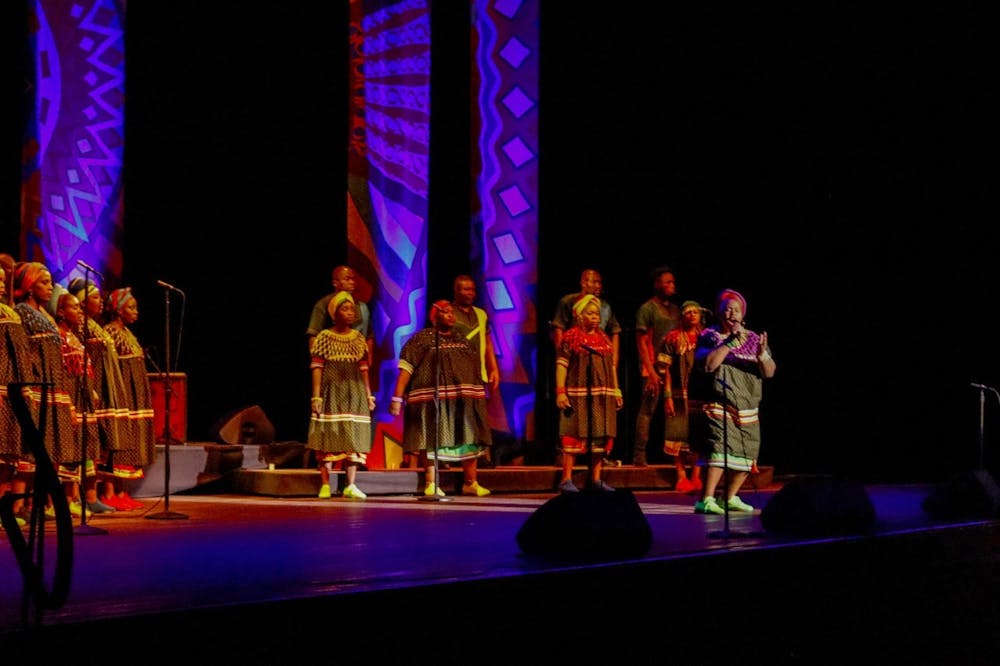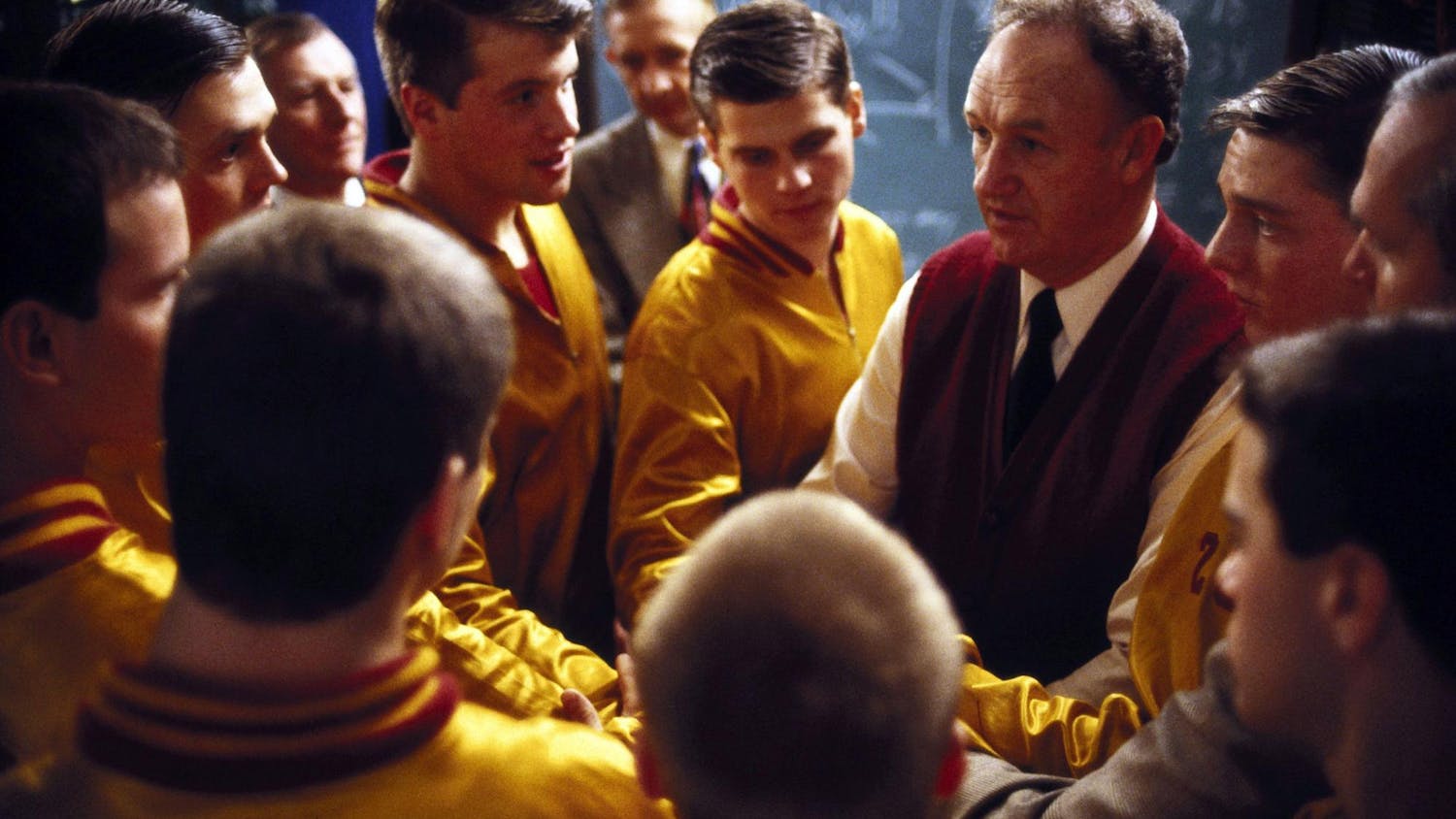The Soweto Gospel Choir performed their concert, “HOPE: It’s been a long time coming” at the IU Auditorium on Oct. 18. The concert showcased freedom songs of South Africa’s apartheid regime, as well as those of America’s civil rights movement.
The first half of the show was dedicated to the subject of apartheid. After the first number, three choir members introduced the group and the concert. They said “Soweto” refers to the Southwest Township outside of Johannesburg, South Africa, where the nation’s first president, Nelson Mandela, lived for almost 20 years.
The style of African gospel on display differs somewhat from traditional American gospel. It’s much more energetic, providing a powerful bed of voices over which soloists carry the main melodies.
The underlying harmonies were uncomplicated and pleasant, supporting the soloist while filling out a consonant texture. The vocalists were almost always moving, with simple, smooth dance steps that kept the ensemble’s rhythm locked in.
Related: [Constellation Stage and Screen to premiere 17th annual screening of Rocky Horror Picture Show]
Piercing bird calls wove in between soloists’ phrases in the first several tunes. The backing percussion and synthesizers kept a lively beat throughout, providing just enough support to let the choir shine.
About halfway through the first set, a screen descended and showed images of South Africa under apartheid. People marched in the streets, protesting and rioting as the choir sang the songs that drove forth their efforts.
The final song before the intermission began as a shouting match between different members of the choir. The energy had built up to this point, and the choir was now off their risers, dancing wholly and emphatically. It ended with a rousing reverence in the name of Nelson Mandela, the leader of the South African democratic movement.
The second set opened with a dance and chant, carrying the momentum of the first onward with even livelier melody and movement. This half featured American freedom songs from the artists Otis Redding and Marvin Gaye.
After the opener, the choir performed Curtis Mayfield’s “Amen,” which transitioned into “This Little Light of Mine.” The choir got the audience energized, singing and clapping along. They adopted a bluesier affect, reflecting the American gospel tradition.
Related: [October lineup features lecture, talent show at IU Auditorium]
Their rendition of “RESPECT” is credited to Otis Redding, the song’s composer, but it was clearly inspired by Aretha Franklin’s take. It featured three soloists, the first of whom emulated Franklin’s vocal timbre almost perfectly. The choir demonstrated a mastery over the American gospel and Motown traditions, slipping seamlessly between styles separated by oceans.
During Ronald Miller’s “Heaven Help Us All,” the screen returned, this time showing scenes of the struggle for civil rights. Figures of the movement like Emmett Till and Martin Luther King Jr. looked down over the pleading ballad.
The ensemble’s final number was “Hallelujah.” It built from a single vocalist on the first verse into the full force of the choir and then the audience, as the group encouraged singing along. It was a stunning ending to a breathtaking show.
The Soweto Gospel Choir’s “HOPE” concert beautifully combined disparate styles of music through their origin in similar struggles, masterfully arranging each to fit the group’s composition while retaining the feelings of the originals. Their powerful performance was brimming with spirit and filled the auditorium with hope.




